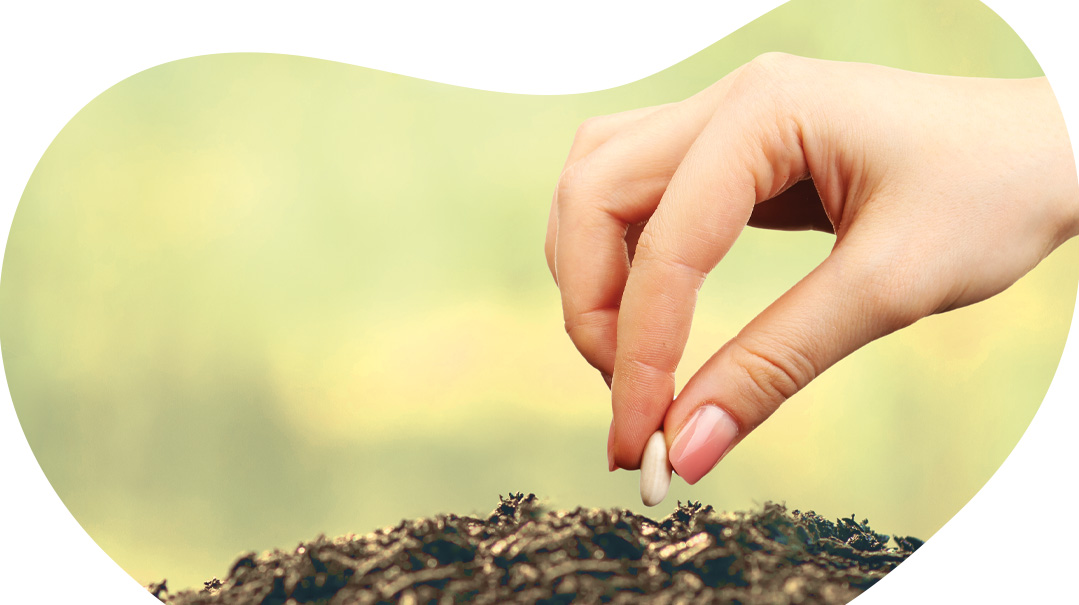The Gift of Silence
| August 2, 2022Was there ever a generation so heavily assaulted by external stimuli?

The Gift of Silence
Sara Eisemann LMSW, ACSW
“Lo matzasi l’guf tov elah shtikah — I have found nothing better for the body than silence.” (Avos 1:17)
How wise were our Chachamim; they knew what science is just beginning to learn. As our knowledge of the brain unfolds, it’s becoming very clear that the body craves stillness to heal. We knew that silence was golden and kept us safe from ills of the tongue, and we understood intellectually that silence is the gate to newfound knowledge. But now, we understand that silence is precious even for the body itself.
Once when my son was little, he got overwhelmed by whatever was going on. He turned to me and said, “I need a piece of quiet.” Our world today agrees. Our nervous systems live on high alert, always prepared to ward off the next threat, but to truly heal and regenerate, our body needs the peace that is born of silence.
I don’t know that the challenges of our generation exceed that of previous generations, but I do believe they are different. Was there ever a generation so heavily assaulted by external stimuli to the point where one can literally go through an entire day and never have a quiet thought? The capacity to sit and be still has been sorely compromised and is becoming obsolete. We may even believe we’re being productive as we confuse busyness with productivity, mistakenly holding productivity as the gold standard of a good life.
Here’s the thing: The need to be busy all the time is a trauma response and a fear-based distraction. It keeps us from facing what we’d be forced to acknowledge and feel if we slowed down. It protects us from coming face-to-face with old hurts that need healing, with the aching void of Hashem’s presence in our lives, and with our existential angst. And every one of those must be confronted to live a meaningful life.
Rav Avraham Yitzchak HaKohen Kook adjoined us to, “be fully present in everything you do, for the entirety of existence is folded in the moment in front of you.” Everything that matters is accessible at every moment, but it requires our attention. It demands that we stop the chatter and tune in.
We destroy any chance for real growth when we hammer louder and louder to drown out the fear of dealing with what we might find when we come face-to-face with ourselves, with each other, and with Hashem. The next time we find ourselves making a lot of noise it would be wise to get still and ask: “What am I blocking out?”
Whether we wish to create healing, closeness, inner peace, or innovation, we must turn down the incessant drumming from the outside. I recently came across a powerful quote that provides a stark visual that captures this idea:
A seed grows with no sound but a tree falls with huge noise. Destruction has noise, but creation is quiet. This is the power of silence. –Unknown
Sara Eisemann LMSW, ACSW is a licensed therapist, Directed Dating coach and certified Core Mentor.
Curiosity, Not Censure
Shira Savit MA, MHC, INHC
Just as important as what we put into our mouths is what we put into our minds. One way to have a healthier mindset is by replacing judgment with curiosity. Instead of judging ourselves for what or how much we ate, we can get curious and ask questions. For example: Instead of, “I have no self-control,” we can ask, “Why might I have eaten those cookies when I wasn’t hungry?”
An analogy to help us understand this concept is: You’re in the supermarket and see a young child who looks lost and is crying. What would you do? Would you go over to the child and say: “Shame on you. You shouldn’t have walked away from your mother. Getting lost is so irresponsible”?
Would you go up to the child and say: “Here, have a chocolate bar and a box of Oreos. That should solve your problem”? Or, would you approach the child, with concern and curiosity: “Sweetie, why are you crying? Are you lost? Did you get hurt? Do you know your mother’s phone number? Do you want me to take you to the cashier to make an announcement on the loudspeaker? What can I do to help you?”
The same compassionate tone and message we offer this lost child is how we can learn to speak to ourselves when we feel “lost” in our cycle of overeating and emotional eating. Instead of rebuke (“shame on you”) let’s ask ourselves: What do you need? What will help you feel better emotionally? Maybe you need some downtime? Are you looking for validation?” and similar questions. With practice, one can become empowered and solution oriented by replacing judgment with curiosity.
Shira Savit MA, MHC, INHC is a mental health counselor and integrative nutritionist who specializes in emotional eating, binge eating, and somatic nutrition. Shira works both virtually and in person in Jerusalem.
Welcome!
Zipora Schuck MA.MS.
We all want our children to be accepted by their peers. Social skills are what people use to initiate and maintain these relationships. Many social skills are considered soft skills, only noticed in their absence, as it’s easier to recognize what isn’t happening than what is.
An easy and important social skill to ensure your children have is the one we call the Welcome Sign. Often the initial point of contact in a relationship, the Welcome Sign is a pleasant resting expression.
Unless someone is feeling significantly upset or angry about something, their facial expression should be neutral — a gentle smile, relaxed look, and clear eye contact. This sends a subliminal message to others that you’re approachable. Looking mad, intense, worried or even guarded sends a keep away message.
Observe your children from time to time and check what message their default or resting expression is sending. If you’d like to help them be more aware of it, here are some things you can do:
- Be careful to model a Welcome Sign yourself.
- Point out others who appear relaxed and pleasant.
- Have some fun looking in a mirror together and deciding what facial expressions would make someone appear approachable.
- If your child shows an angry, anxious, or sad expression much of the time, explore what may be underneath it and deal with the cause.
Zipora Schuck MA. MS. is a New York state school psychologist and educational consultant for many schools in the New York/New Jersey area. She works with students, teachers, principals, and parents to help children be successful.
(Originally featured in Family First, Issue 804)
Oops! We could not locate your form.







